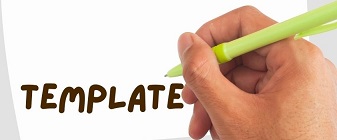Application of Agile Marketing Vocational Higher Education at the Politeknik Negeri Pariwisata Makassar
(1) Politeknik STIA LAN Makassar
(2) Politeknik STIA LAN Makassar
(3) Politeknik STIA LAN Makassar
(*) Corresponding Author
DOI: https://doi.org/10.26858/ja.v10i1.40171
Abstract
Keywords
Full Text:
PDFReferences
Badu, S. Q., & Djafri, N. (2017). Kepemimpinan dan Perilaku Organisasi. Ideas Publishing.
Barrales-Molina, V. (2014). Dynamic Marketing Capabilities: Toward An Integrative Framework. International Journal of Management Reviews, 16(4), 397–416.
Bruni, D. S., & Verona, G. (2009). Dynamic Marketing Capabilities in Science-based Firms: An Exploratory Investigation of the Pharmaceutical Industry. British Journal of Management, 20, 101–117.
Darwis, M., Arhas, S. H., & Nasrullah, M. (2021). Online Learning Based on the Borneo E-Learning Application (A Study of Student Satisfaction Analysis in the Use of the BEL Application at the Universitas Borneo Tarakan). International Joined Conference on Social Science (ICSS 2021), 576–581.
DeGroote, S. E., & Marx, T. G. (2013). he impact of IT on supply chain agility and firm performance: An empirical investigation. International Journal of Information Management, 33(6), 909–916.
Glavas, A., Jules, C., & Oosten, E. Van. (2006). Creating a Culture of Collaboration : The International Association of Facilitators Handbook (Use of Self in Creating a Culture of Collaboration). Jossey-Bass.
Gligor, D. M., Holcomb, M. C., & Stank, T. P. (2013). A multidisciplinary approach to supply chain agil- ity: Conceptualization and scale development. Journal of Business Logistics, 34(2), 94–108.
Gomes, E., Sousa, C. M., & Vendrell-Herrero, F. (2020). International marketing agility: Conceptualiza- tion and research agenda. International Marketing Review, 37, 261–272.
Hagen, B. (2019). rom Fragile to Agile: Marketing as A Key Driver of Entrepreneurial Internationalization. International Marketing Review, 36, 260–288.
Kalaignanam, K. (2021). Marketing Agility: The Concept, Antecedents, and A Research Agenda. Journal of Marketing, 85(1), 35–38. https://doi.org/https://doi.org/10.1177/0022242920952760
Kitchens, B., Dobolyi, D., Li, J., & Abbasi, A. (2018). Advanced Customer Analytics: Strategic Value Through Integration of Relationship-Oriented Big Data. Journal of Management Information Sys- Tems, 35(2), 540–574.
Kroger, J., & Marx, S. (2020). Agile Marketing. Springer Gabler.
Miles, M. B., Huberman, A. M., & Saldana, J. (2014). Qualitative Data Analisis. A Methods Sourcebook. Sage Publication.
Novianti, S., & Amirullah, A. H. (2015). Efektivitas Teknologi Pembelajaran Dalam Proses Pembelajaran Pada Jurusan Produksi Siswa Smk Negeri 1 Pallangga Kecamatan Pallangga Kabupaten Gowa. Jurnal Office, 1(2), 135–140.
Orlandi, L. B. (2016). Organizational Capabilities in the Digital Era: Reframing Strategic Orientation. Journal of Innovation & Knowledge, 1(3), 156–161.
Sarder, R. (2016). Building an Innovative Learning Organization : a Framework to Build a Smarter Workforce, Adapt to Change, and Drive Growth. In Paper Knowledge. Toward a Media History of Documents.
Suprianto, S., Arhas, S. H., Mahmuddin, M., & Siagian, A. O. (2020). The Effectiveness of Online Learning Amid the COVID-19 Pandemic. Jurnal Ad’ministrare, 7(2), 321–330.
Xu. (2018). Facilitating Dynamic Marketing Capabilities Development for Domestic and Foreign Firms in An Emerging Economy. Journal of Business Research, 86, 141–152.
Article Metrics
Abstract view : 284 times | PDF view : 78 timesRefbacks
- There are currently no refbacks.
Copyright (c) 2023 Eljihad Akbari Syukriah M, Jenica Sampe Pande, Najmi Kamariah

This work is licensed under a Creative Commons Attribution 4.0 International License.






























 under a
under a